Are you looking for an easy and effective platform for building an eCommerce website? Wix and Shopify are known for their user-friendly interfaces, making them attractive for beginners. And with the addition of powerful AI features, they have become even better. But which one is better for you? In this post, we’ll explore Wix vs Shopify, weighing factors like ease of use, cost, AI features, customization, marketing, and other crucial aspects. Read on to find the ideal platform for your eCommerce venture.
- 1 Wix vs Shopify: Brief Overview
- 2 Who Are Wix And Shopify Best Suited For?
- 3 Pricing
- 4 Ease of Use
- 5 AI Features
- 6 Ecommerce Features and Capabilities
- 7 Templates and Design Customization
- 8 Marketing and SEO
- 9 Wix vs. Shopify: Which One Is Better?
- 10 AI-Powered Alternatives to Wix and Shopify
- 11 Frequently Asked Questions (FAQs)
Wix vs Shopify: Brief Overview
What is Wix?
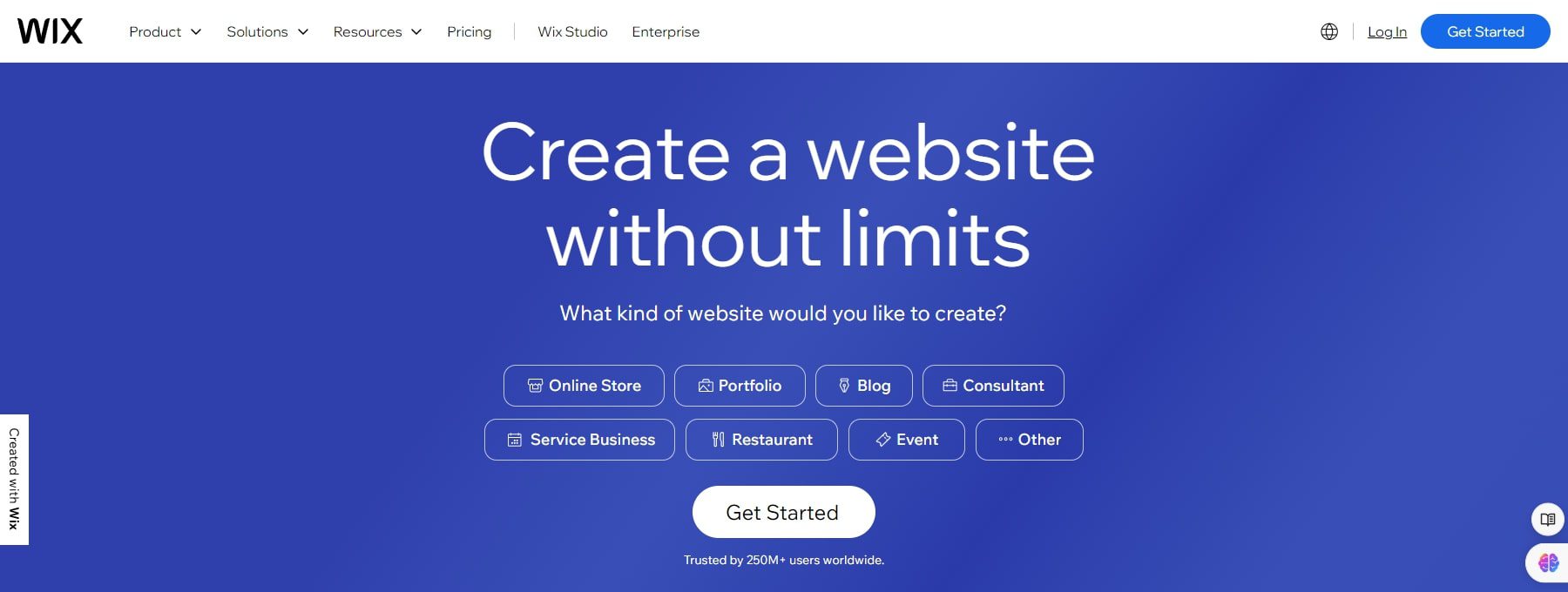
Wix is a cloud-based platform designed to make creating websites accessible to everyone, even those without coding knowledge. It uses a drag-and-drop interface, so you can visually arrange the elements on your webpage without writing any code. They offer an extensive library of pre-designed templates to get you started, and these templates can be customized with Wix’s design tools to match your unique style. Users can also integrate third-party applications and services to enhance the functionality of their websites.
Once your website is built, Wix also provides features to help you manage it, like adding features for online stores or appointment scheduling and promoting it through search engine optimization (SEO) tools. It is arguably the most popular website builder in the world, with approximately 46% market share.
What is Shopify?
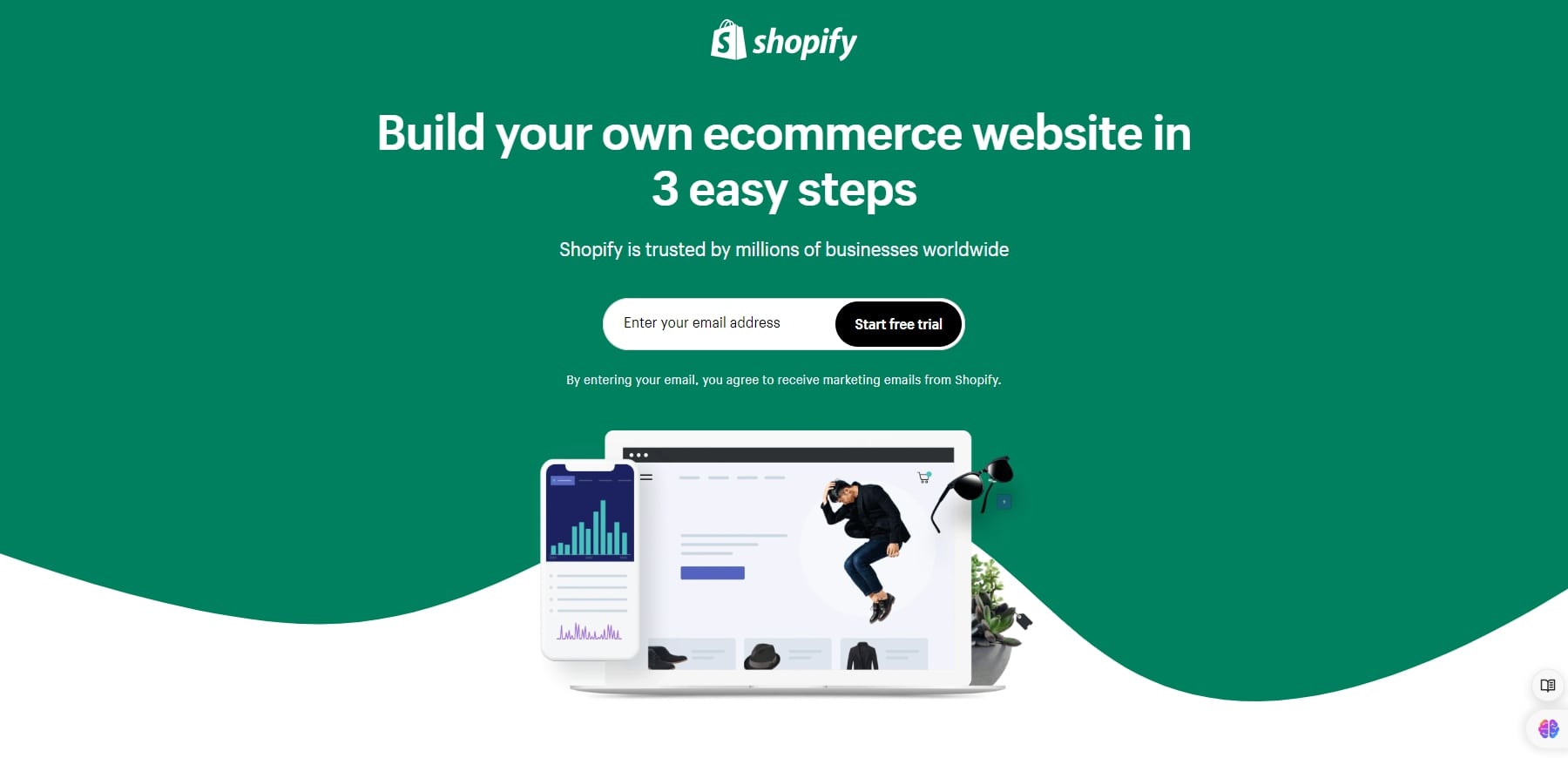
Shopify is a comprehensive eCommerce platform that empowers businesses of all sizes to establish a solid online presence. Even with no coding experience, it allows you to design a professional-looking online store using drag-and-drop tools and a variety of customizable themes. This streamlines the setup process, making it ideal for entrepreneurs eager to launch their online business quickly.
Beyond storefront creation, Shopify offers a robust suite of features to manage your business effectively. From secure payment processing and inventory management to the ability to expand sales channels to social media platforms, this platform provides the tools you need to streamline operations and maximize your online sales potential.
Who Are Wix And Shopify Best Suited For?
Wix’s drag-and-drop interface and attractive design make it perfect for beginners who want to build a website without coding knowledge. It offers a comprehensive website creation suite with features like blogging, email marketing, and basic online store functionality, suitable for small businesses to establish their online presence. Wix also allows for showcasing portfolios, scheduling appointments, and selling digital products, catering to artists, photographers, designers, and other creatives who want to build a platform to present their work.
Shopify is an eCommerce platform designed specifically for selling products online. It offers quality features for inventory management, secure payments, and marketing integrations. Shopify can handle many products and variants, making it ideal for businesses with a diverse inventory. It provides features for managing multiple currencies and languages, allowing businesses to reach a global audience.
Ultimately, the best platform depends on your specific needs. Wix is an excellent choice for a simple website or a small online store, while Shopify is ideal for businesses that prioritize top eCommerce functionality and growth potential.
Pricing
Let’s examine how Wix and Shopify structure their pricing plans to suit various needs.
Wix Pricing
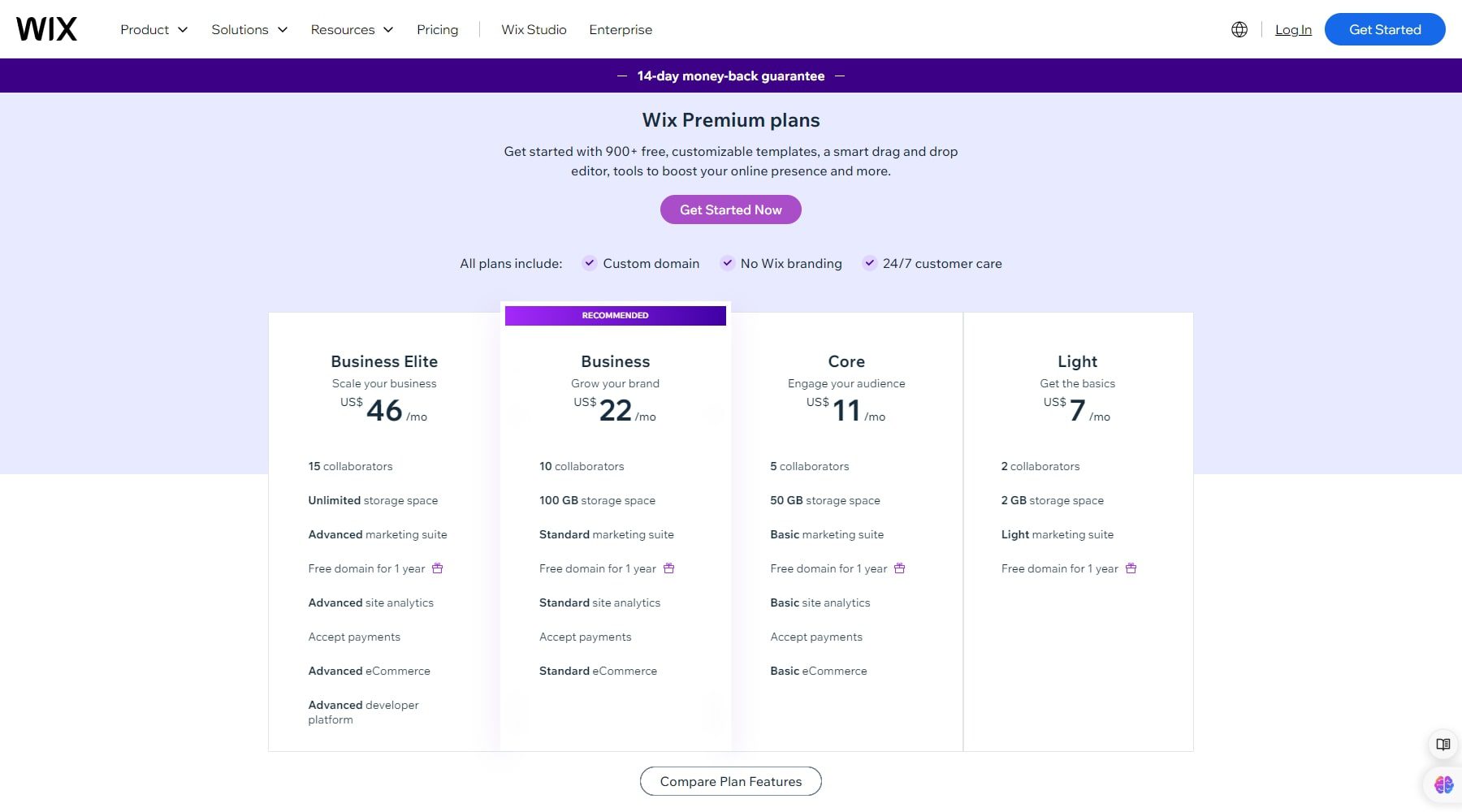
Wix offers different payment plans that vary in how much space and data you can use.
Wix’s Free Plan
Wix does offer a completely free plan with limitations. You’ll get only 500MB of storage for your website. You will have to deal with Wix branding and ads. And you’ll have to pay extra ($17.35 per year) to use your custom domain. And you’ll need to upgrade if you want to sell online.
This is a good option if you want a free website for personal projects or blogging. It is also a great way to try out the platform before purchasing a paid plan.
Their Basic Plan
- Light ($7 per month): 2GB storage, two collaborators, a light marketing suite, and a free domain for one year.
Plans Supporting eCommerce
Wix lets you add eCommerce tools like PayPal, Stripe, and Wix Payments to your website. They all have the same transaction fees: $2.9 plus 30 cents. And with any business plan, you can sell as many items as possible. The main things to consider are how much storage you get and extra features like label printing, drop shipping, and automatic sales tax calculation.
- Core ($11 per month): 50GB storage, basic marketing tools, site analytics, basic eCommerce features, and a free domain for one year, with room for five collaborators.
- Business ($22 per month): This plan offers 100GB storage, standard marketing tools, site analytics, standard eCommerce features, and a free domain for one year with ten collaborators.
- Business Elite ($46 per month): Unlimited storage, advanced marketing tools, site analytics, advanced eCommerce features, an advanced developer platform, and a free domain for one year with 15 collaborators.
Once again, the middle option is usually the best because it gives you a good balance of features and capacity that suits most small businesses.
View Wix Pricing Plans
Shopify Pricing
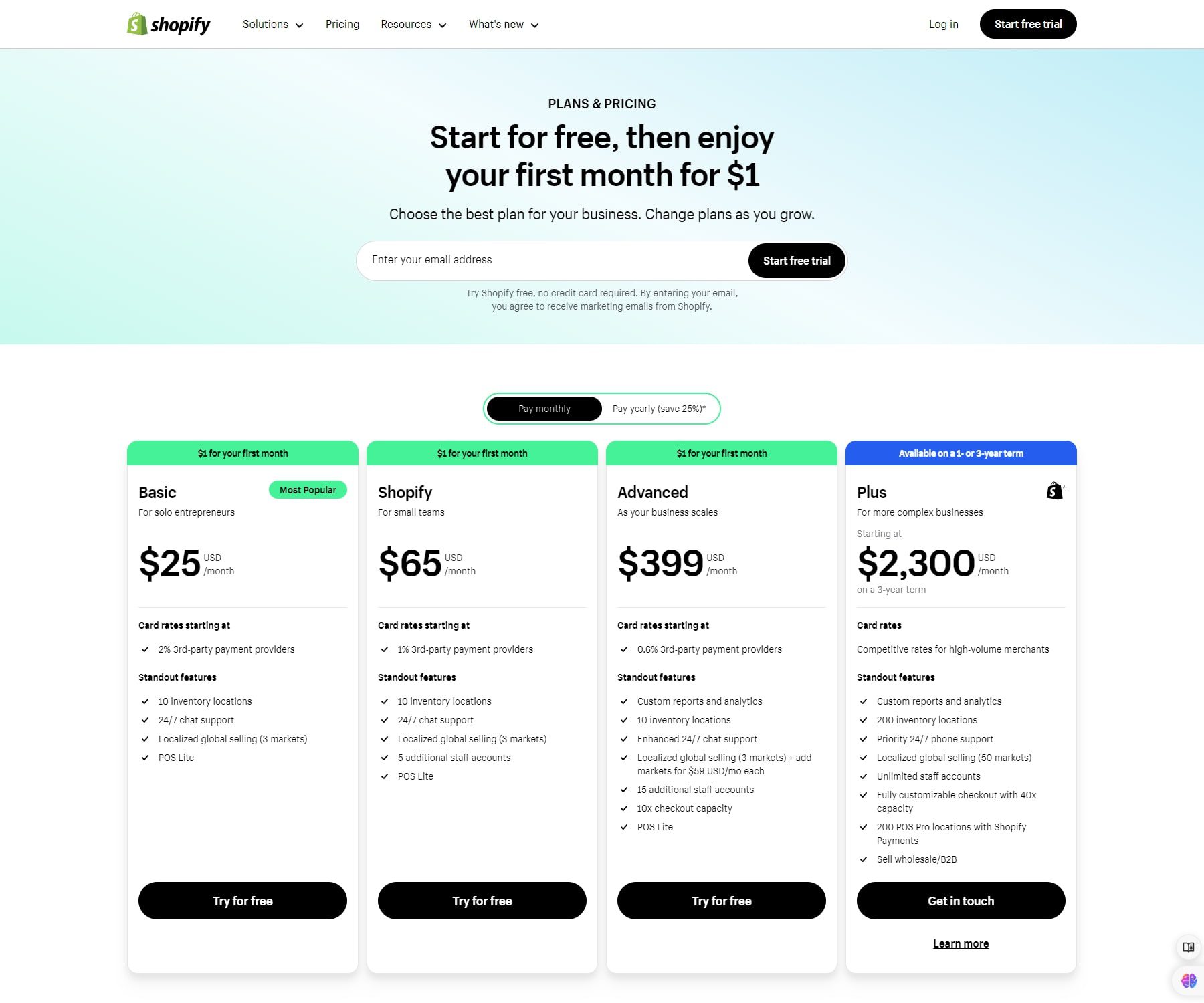
Shopify has its pricing set up with four tiers. The main variations are in shipping discounts and transaction fees – the higher your subscription, the lower your transaction fees. You can dodge credit card fees using Shopify Payments, their built-in payment system. Here are the pricing plans for Shopify:
- Basic ($25 per month): ten inventory locations, 24/7 chat support, global selling in three markets, POS Lite, and 2% third-party payment provider fees.
- Shopify ($65 per month): ten inventory locations, 24/7 chat support, global selling in three markets, five additional staff accounts, POS Lite, and 1% third-party payment provider fees.
- Advanced ($399 per month): Custom reports and analytics, ten inventory locations, 24/7 chat support, global selling in three markets (additional markets for $59 each per month), POS Lite, 15 additional staff accounts, 10x checkout capacity, and 0.6% third-party payment provider fees.
- Plus ($2300 per month): Custom reports and analytics, 200 inventory locations, 24/7 chat support, global selling in 50 markets, POS Lite, fully customizable checkout with 40x capacity, 200 POS Pro locations with Shopify Payments, and wholesale/B2B selling capabilities.
 |  |
|
|---|---|---|
| Pricing | 🥇 Winner Wix provides flexible pricing plans starting from $7/month for basic websites and $11/month for online stores, offering features like free domain and eCommerce tools. | Shopify's pricing tiers start at $25/month for basic features, escalating to $399/month for advanced capabilities, potentially becoming costly for businesses. |
| Choose Wix | Choose Shopify |
Winner: Wix
Wix seems to give you more bang for your buck regarding eCommerce. Paying for Shopify’s eCommerce features might not make sense if you’re mainly focused on managing content. Shopify provides more for a slightly higher price in its basic plans (just $3 more). However, when you look at the advanced plans, Shopify is noticeably pricier. So, if you’re looking for a cost-effective eCommerce solution, Wix takes the cake.
Ease of Use
When considering website creation, simplicity is crucial. Yet, only partially dismiss a platform due to its learning curve. It’s about striking the perfect balance. Let’s delve into Wix and Shopify to understand their comparative strengths.
Wix’s Ease of Use
Wix is the most popular website builder because of its ease of use. You can move things around with a simple drag-and-drop feature. If you want to add something, click on it, and boom, it’s there on your page. Plus, all the tools you need are on the left side of your screen, so you don’t have to hunt for them.
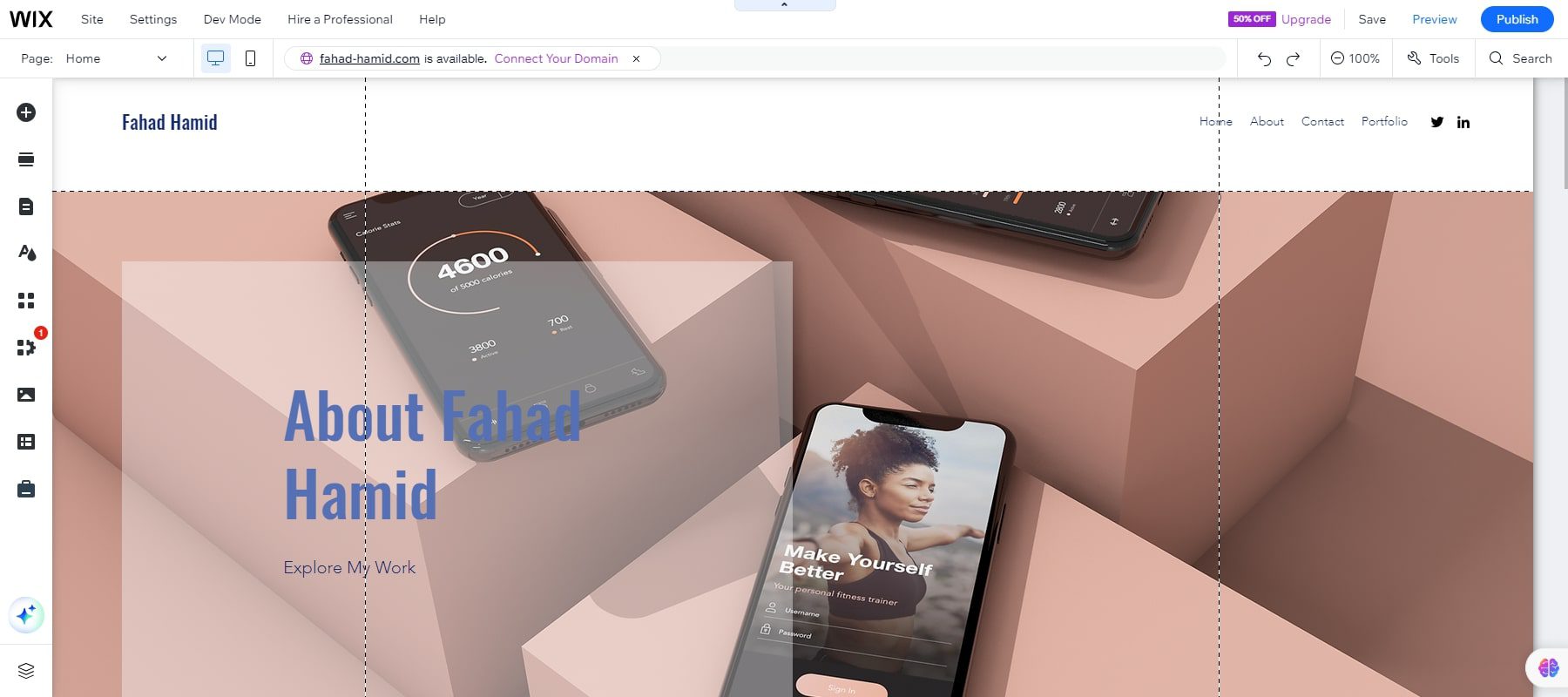
Even if you’re not a tech expert, Wix has your back. You can switch between pages without breaking a sweat. And if you’re not feeling the default stuff, there is no need to worry. This website builder gives you pre-designed sections to spice up your site without starting from scratch. Moreover, its editor has a ruler to keep everything neat. Your site will look great on phones, tablets, and computers. This platform is trustworthy, and building a site with it is as easy as pie. You’ll have a slick site up and running in no time.
Shopify’s Ease of Use
When we tried out Shopify and Wix side by side, we found that Shopify was a different walk in the park. It had many complications when we tried to customize things. Unlike Wix’s easy drag-and-drop editor, you are stuck with Shopify templates that depend on your chosen theme.
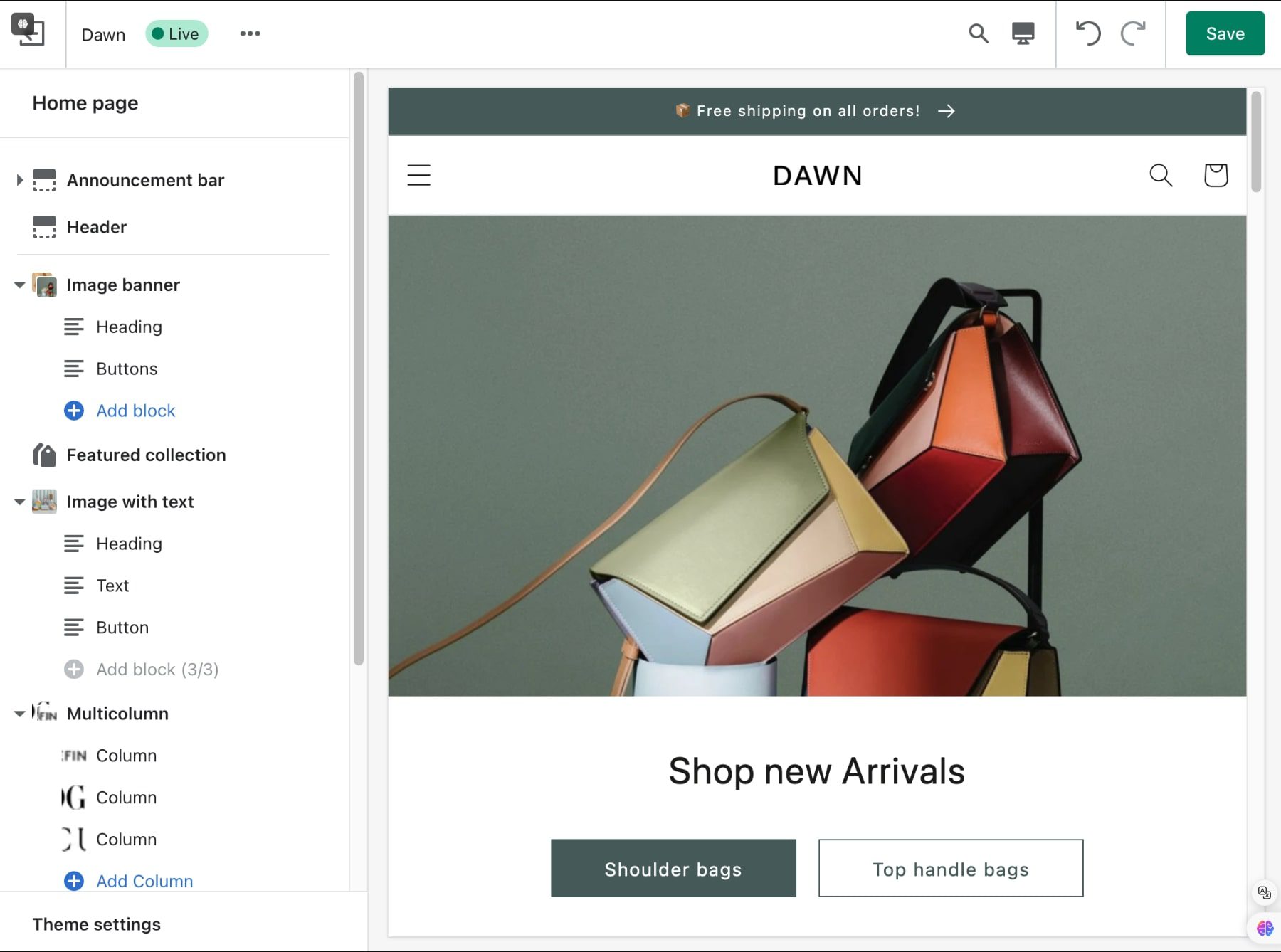
Shopify uses a fancy markup language called Liquid. Hence, it would be best to start studying markup language to tweak your Shopify store. Otherwise, you will completely mess up your website.
 |  |
|
|---|---|---|
| Ease of Use | 🥇 Winner Wix is easier to use because you can just drag and drop things where you want them on your website. | Shopify doesn't have a simple drag-and-drop feature like Wix. Instead, you're kind of stuck with the templates they offer, which can be limiting. |
| Choose Wix | Choose Shopify |
Winner: Wix
If you’re looking for simplicity, Wix wins hands down. So, if you’re deciding between Wix and Shopify, and ease of use is your main concern, Wix is the way to go.
AI Features
By integrating AI technology into their platforms, Wix and Shopify have made it easy for customers to build websites. Wix is considered one of the best AI website builders, being one of the first to offer their artificial design intelligence (ADI) website generator to the marketplace. However, both offer AI-powered tools that streamline the process. Let’s explore how Wix and Shopify use AI and evaluate their effectiveness.
Wix’s Artificial Design Intelligence (ADI)
Wix’s ADI offers a seamless onboarding experience for users looking to create their websites. From the moment you initiate the website creation process, the AI engages with you, gathering essential information about your site’s purpose and desired features. This proactive approach allows ADI to automatically incorporate these elements during setup, eliminating the need for manual addition post-onboarding. By streamlining this process, Wix ensures you focus more on refining your content than navigating through complex design options.
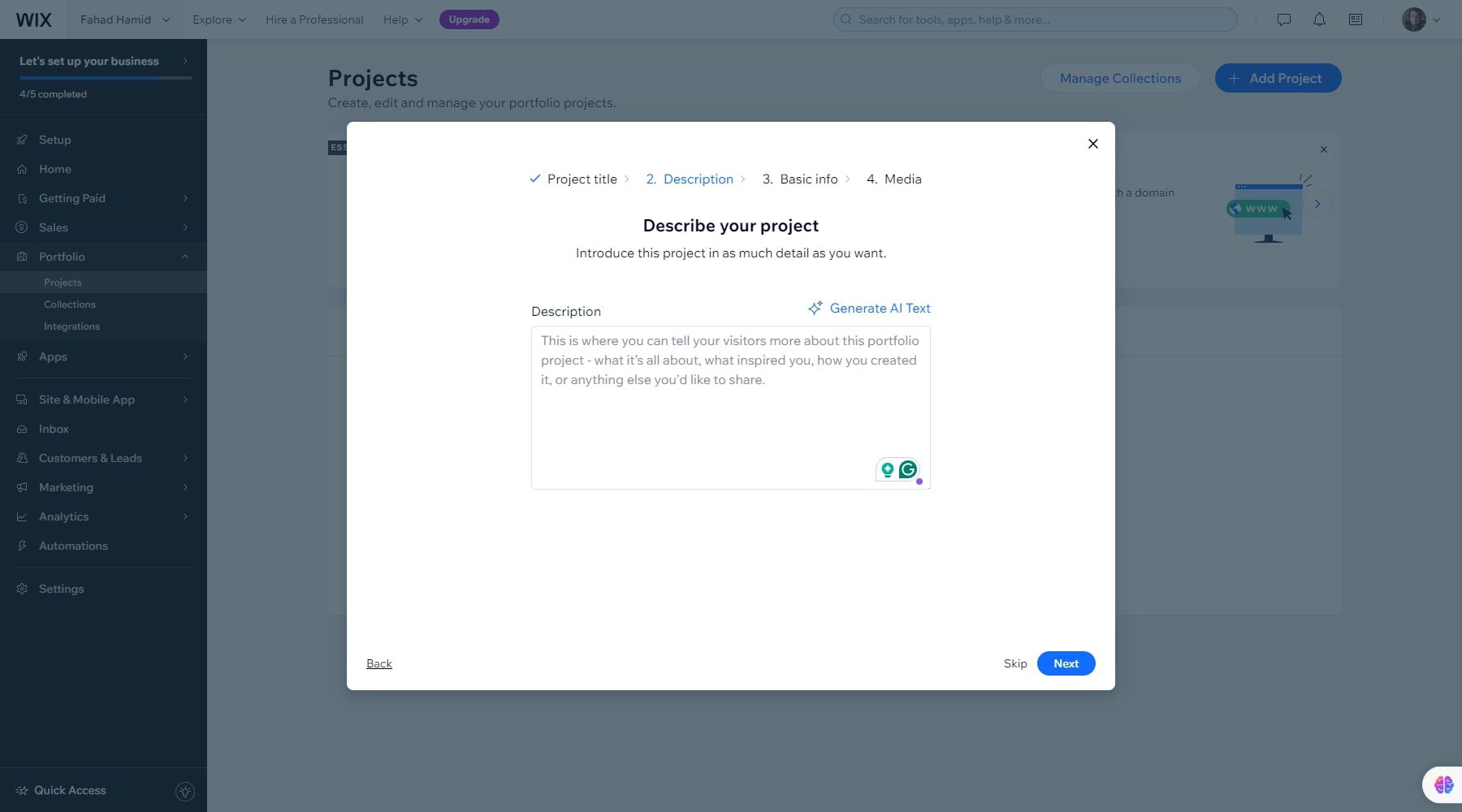
Upon completing the initial setup, you are presented with the choice of selecting a template or utilizing the AI to craft a personalized one. If opting for a template, Wix’s AI suggests relevant options based on earlier preferences, ensuring alignment with your vision. Alternatively, you can entrust the AI to generate a custom template, where they can select a preferred theme from a range of options. The AI then crafts three homepage templates, each reflecting the chosen theme, empowering users with creative control. Moreover, Wix simplifies the addition of essential pages such as FAQs, About, and Contact, ensuring consistency in design across the site. With the foundation set, you can seamlessly transition to the editor, ready to perfectly tailor your website.
Shopify’s AI Features
Shopify incorporates AI into its onboarding process, although it is notably less robust than Wix. The AI’s involvement begins at the onset of onboarding, where you are prompted to provide essential details about your online store, such as the business name, desired features, and preferred sales channels.

Using this information, Shopify’s AI constructs a personalized store or website, streamlining the setup process by automatically integrating the selected features. This proactive approach reduces the manual tasks required from users, ensuring a smoother transition into building their online presence.
 |  |
|
|---|---|---|
| Artificial Design Intelligence | 🥇 Winner Wix emerges as the superior choice due to its comprehensive and user-centric approach. When you start making your site, Wix's AI talks to you and asks what you want. Then, it sets up your site with those things automatically, so you don't have to do as much work. | After the initial setup, Shopify's AI doesn't play a big role in making your website look better. |
| Choose Wix | Choose Shopify |
Winner: Wix
Unlike Wix, Shopify’s AI is limited in its capabilities and ceases to assist with page design beyond the initial setup phase. Hence, Wix wins the battle in the AI department.
Ecommerce Features and Capabilities
Before, we discussed creating a website that is not just for selling things online. However, because online selling is important for most eCommerce businesses, let’s look closely at how Wix and Shopify compare to online selling features.
Wix’s Ecommerce Features
A key factor to consider when designing your Wix eCommerce store is user-friendliness, which is precisely how easy it is for customers to pay for their purchases. Wix offers a variety of payment options that cater to this need while providing some advantages for the store owner. Wix Payments is Wix’s payment processing system. This translates to a smooth checkout experience for your customers. They won’t be redirected to a separate payment gateway, keeping them engaged in buying.
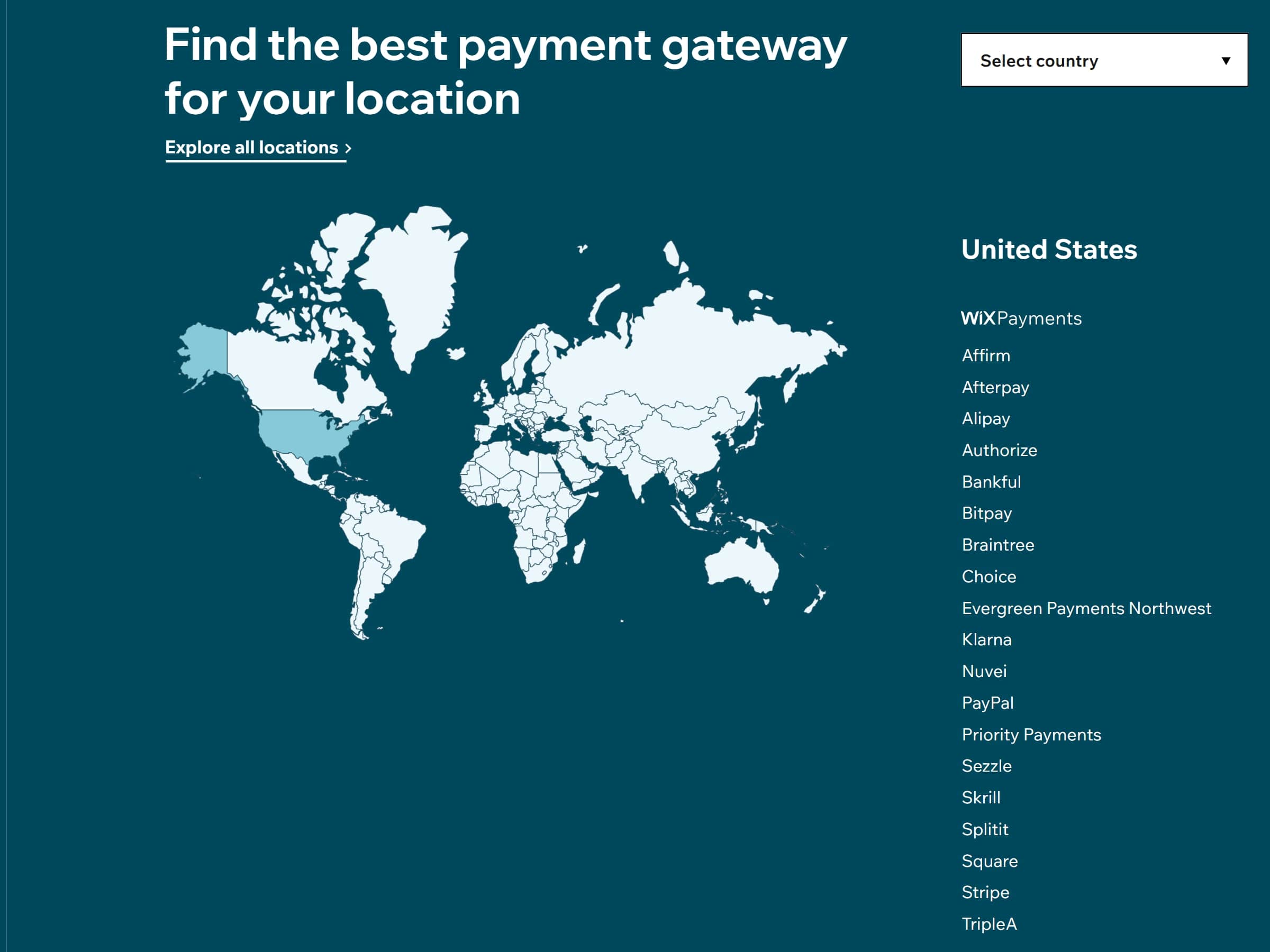
Wix allows you to accept various payment methods, including credit cards (Visa, Mastercard, etc.), popular options like PayPal and Stripe, and even buy-now-pay-later solutions (depending on your location). This gives your customers flexibility in how they choose to pay. There is no transaction fee on credit cards, which is a massive boost for new businesses. You can offer more competitive pricing or better margins without transaction fees eating into your profits.
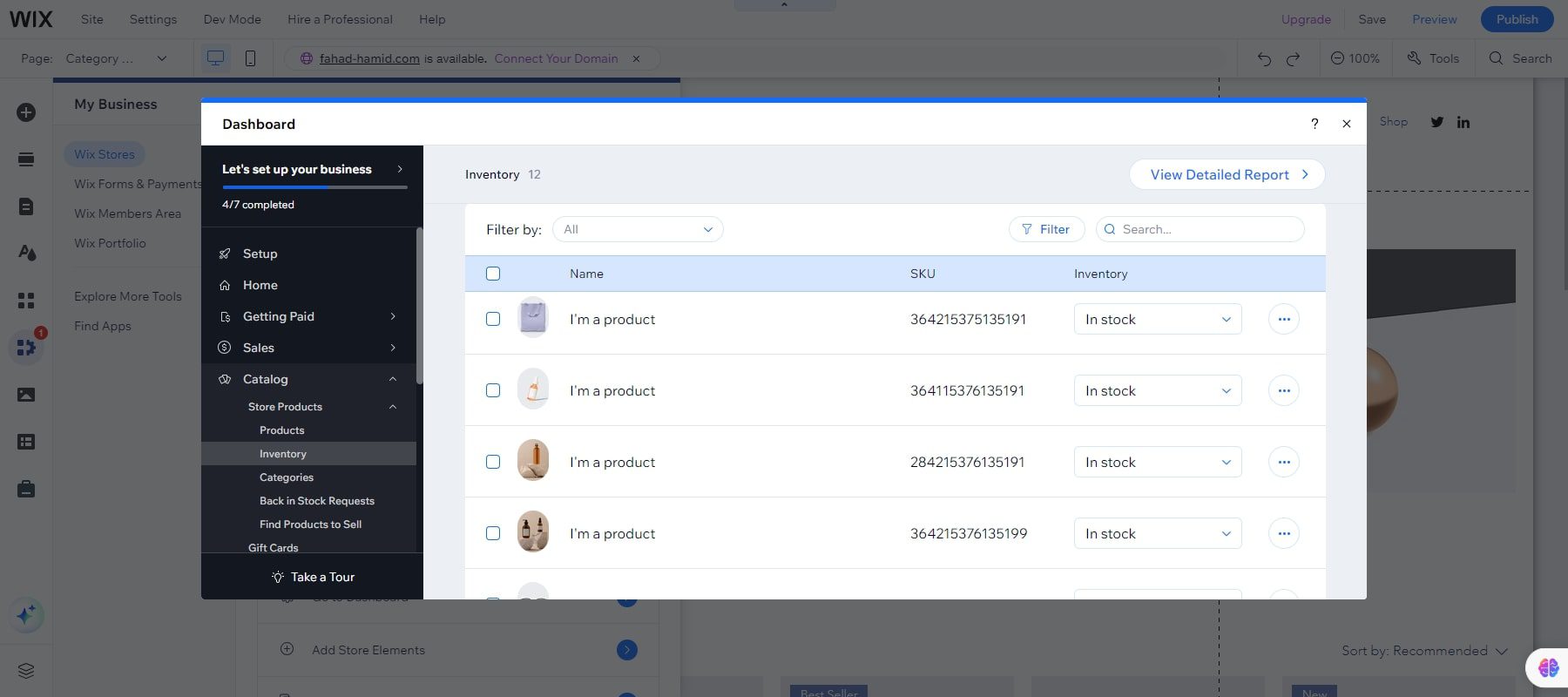
Wix offers built-in inventory management features that can be helpful for businesses starting out or with a smaller product range. However, its system can be improved with apps from their app market for those with a larger inventory or more complex needs. Wix allows you to track the quantity of each product in stock. This helps you avoid overselling and ensures customers don’t order unavailable items. You can manually update inventory levels, or Wix can automatically do it when a sale is made. This removes the necessity for frequent manual changes. Lastly, this platform lets you display an “Out of Stock” message when a product runs out. This prevents customer frustration and avoids false expectations.
Shopify’s Ecommerce Features
Shopify offers several payment methods, making it a flexible and attractive platform for online stores. It has a built-in payment gateway, eliminating the need for a separate merchant account. It accepts all major credit cards and provides a seamless checkout experience. Moreover, Shopify integrates with numerous third-party processors like Authorize.net and Stripe, offering additional features and potentially lower fees depending on your transaction volume.
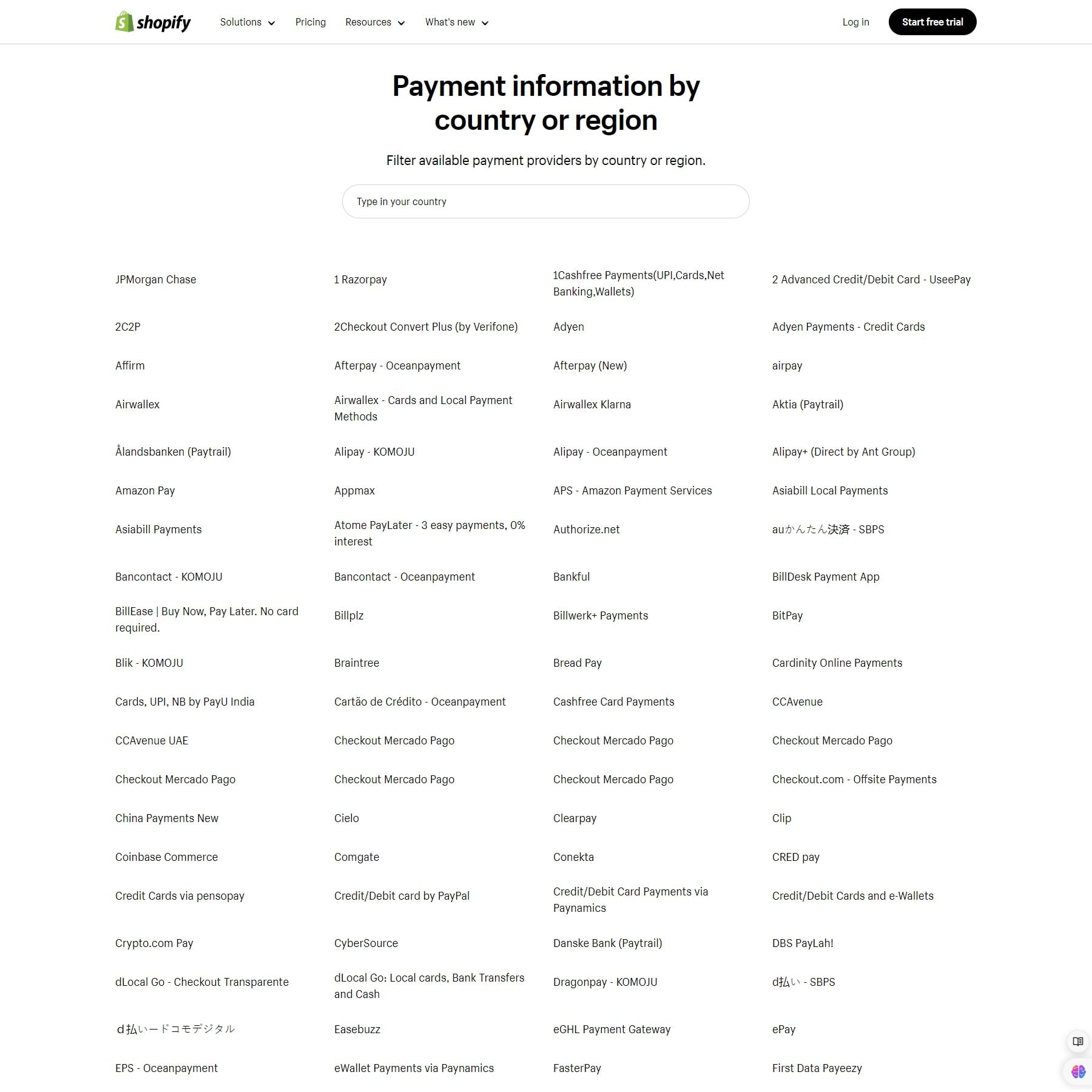 Shopify goes beyond traditional credit cards, catering to a broader range of customer preferences. You can integrate popular options like Google Pay, Apple Pay, and Facebook Pay for faster checkout with pre-filled information. Lastly, you can embrace the future of finance by allowing customers to pay with cryptocurrencies through compatible gateways.
Shopify goes beyond traditional credit cards, catering to a broader range of customer preferences. You can integrate popular options like Google Pay, Apple Pay, and Facebook Pay for faster checkout with pre-filled information. Lastly, you can embrace the future of finance by allowing customers to pay with cryptocurrencies through compatible gateways.
 |  |
|
|---|---|---|
| Ecommerce Features and Capabilities | Wix has relatively limited payment options and basic inventory management features. | 🥇 Winner Shopify has extensive payment options, seamless checkout experience, and integration with third-party processors like Stripe and Authorize.net. Additionally, it offers advanced payment methods such as Google Pay and cryptocurrency payments |
| Choose Wix | Choose Shopify |
Winner: Shopify
Shopify is the winner here, but it is close. Wix can work well for smaller businesses if you tweak it a bit. However, when it comes to growing your business and having all the features you need, Shopify is the clear choice.
Templates and Design Customization
Building a powerful website involves tailoring it to suit your business and meet your customers’ expectations. Wix and Shopify both give you plenty of choices for personalized templates to do just that. Here’s a brief overview of what each platform offers regarding customization.
Wix’s Templates and Customization
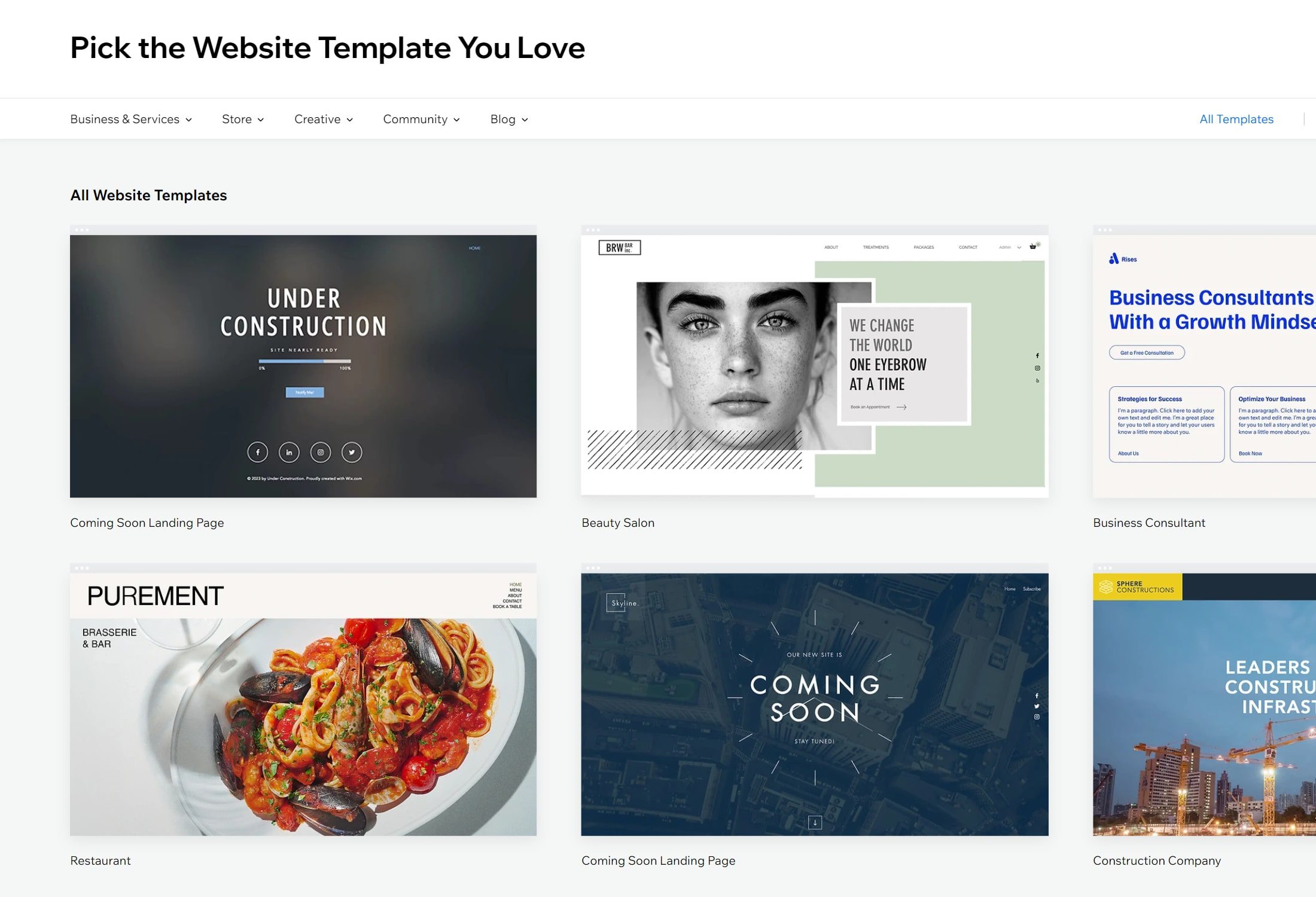
Wix offers a vast selection of website templates, boasting over 800 designs. Most importantly, all of these templates are completely free to use. Compared to Shopify’s free themes, Wix templates stand out in design aesthetics and the features they offer. It provides more modern and diverse templates to suit various business needs.
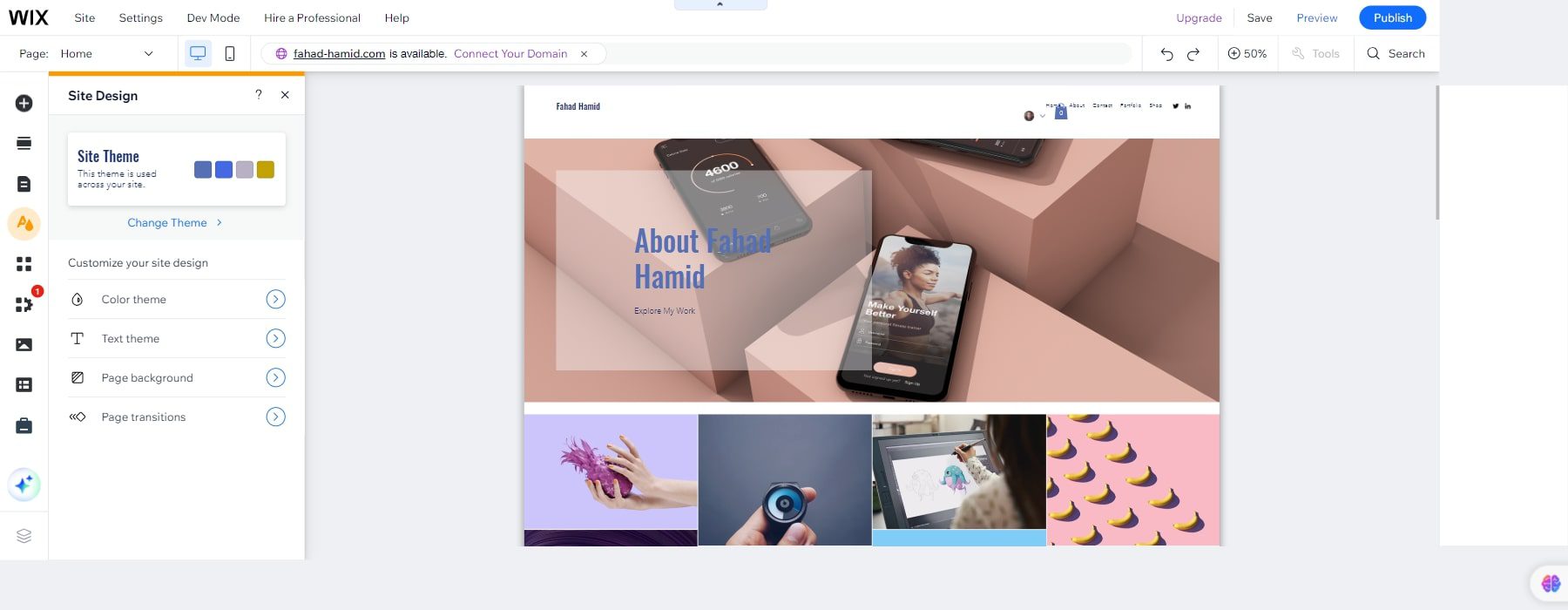
The platform prides itself on user-friendly editing. Customizing templates is a breeze with drag-and-drop functionality. You can drag elements from the toolbar and drop them onto your pages to arrange and personalize your website’s layout. Moreover, Wix doesn’t restrict you to a single theme’s limitations. You can go beyond the base template and customize it extensively. Even when editing individual pages, the editor offers a selection of templates designed explicitly for elements and section layouts, allowing you to refine your website piece by piece.
Shopify Themes and Customization
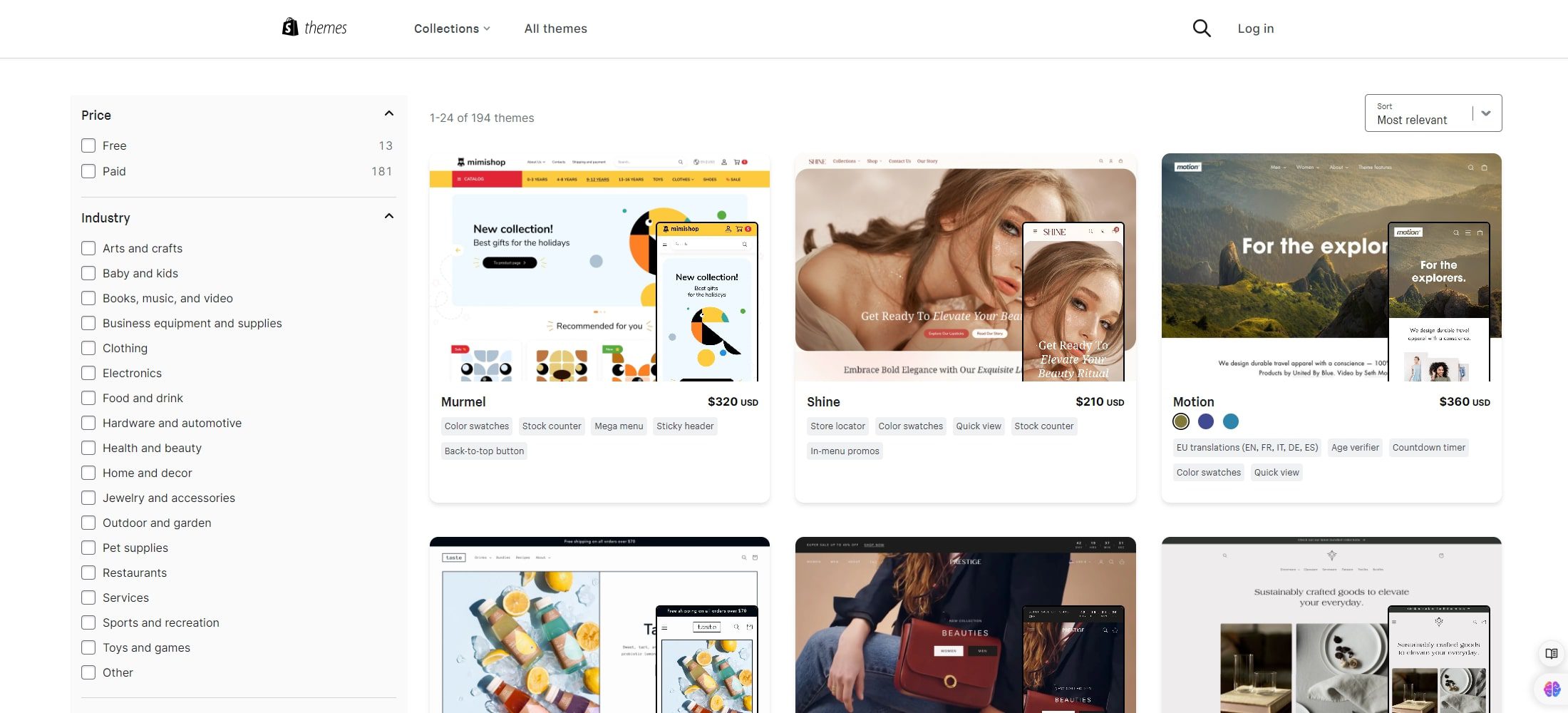
Compared to Wix, Shopify has a smaller selection of 194 Shopify themes, with roughly 13 free themes. Paid themes typically start at $180 for a one-time purchase. These themes are a great option if you’re on a budget or new to building your online store. However, they may offer fewer customization options than paid themes.
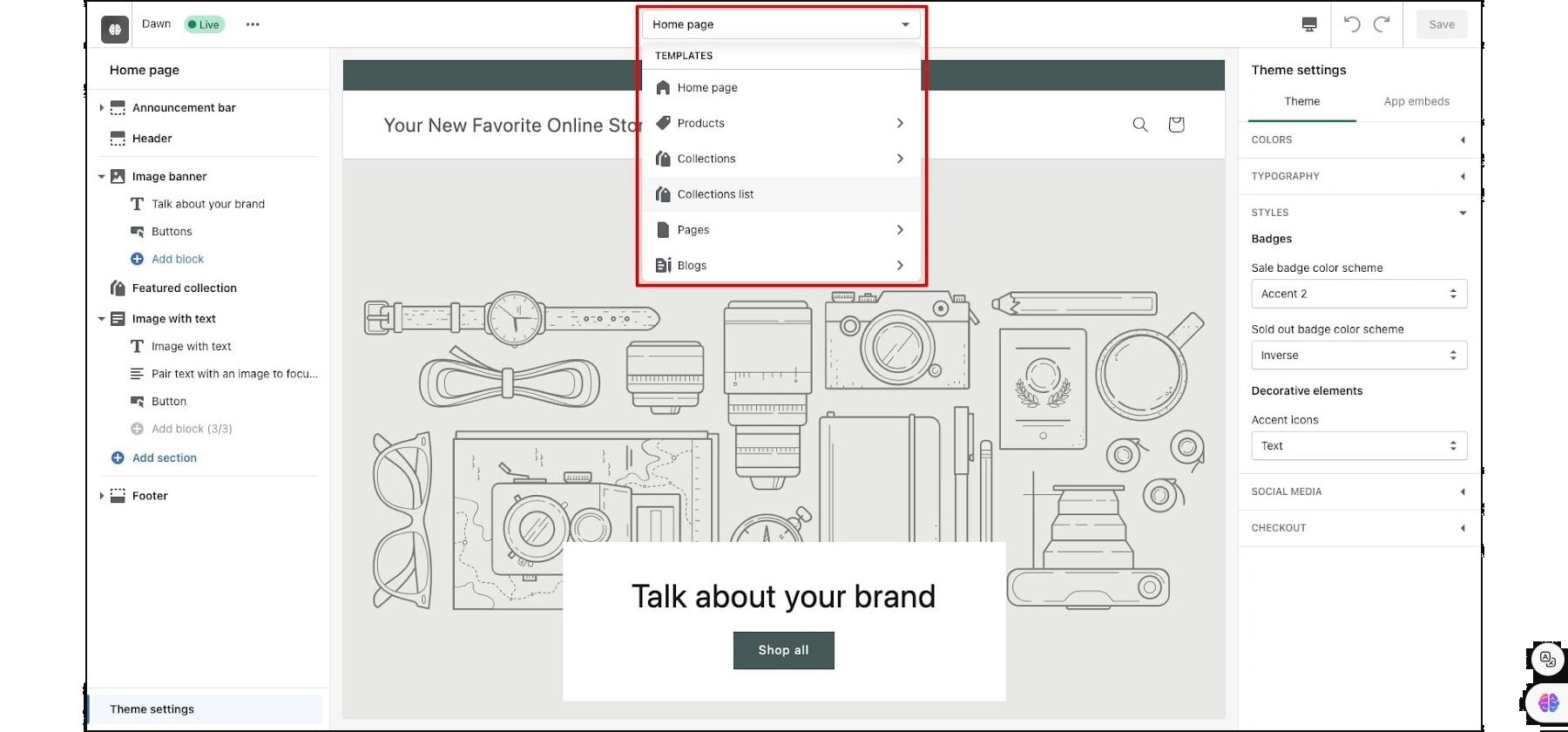
Shopify offers a theme editor to customize your store’s look and feel. Its editor doesn’t have a drag-and-drop functionality, which means the level of customization you can achieve depends on the theme you’ve chosen and the options it provides. Each theme is built using templates that define the layout and structure of your store’s pages. You should create new templates to make significant changes to the layout, which can involve coding knowledge.
 |  |
|
|---|---|---|
| Templates and Customization | 🥇 Winner Wix gives you lots of free templates to choose from. Although some lack more modern design, they have more features. | Shopify has fewer free themes to pick from and not as many features. However, the designs are more clean and modern. |
| Choose Wix | Choose Shopify |
Winner: Wix
Wix emerges as a better choice for those seeking flexibility and ease of customization when building their online presence. Wix offers over 800 free templates, providing modern designs and diverse options, while Shopify has 194 themes with fewer free choices. Wix’s extensive drag-and-drop customization is user-friendly and allows for flexible layout adjustments. In contrast, Shopify’s customization relies on theme editors and may require coding for significant changes. However, Shopify does have better-looking templates despite having fewer options.
Marketing and SEO
Marketing and SEO are critical factors if you aim for a website that ranks high on search engines. A website builder with exquisite SEO features can propel your business forward, while one lacking in this department could hold you back. To determine which platform, Shopify or Wix, fares better in these two features, we meticulously assessed the fundamental aspects every builder should excel in.
Wix’s Marketing and SEO
Wix offers robust marketing, and SEO features to help users optimize their websites for better visibility and engagement. SEO basics allow users to edit metadata and URLs, essential for improving search engine rankings. However, Wix goes the extra mile by supporting keywords, giving users more tools to enhance their SEO efforts and rank higher in search results.
One feature of Wix is its integrated email marketing solution called Wix Ascend. This feature allows users to create and send customized email campaigns, with pricing ranging from $11 to $35 per month, depending on the subscription plan. Users can still send up to three monthly email campaigns even without subscribing. Wix’s email marketing tool is powerful and provides access to detailed insights and data, enabling users to track the performance of their campaigns effectively.
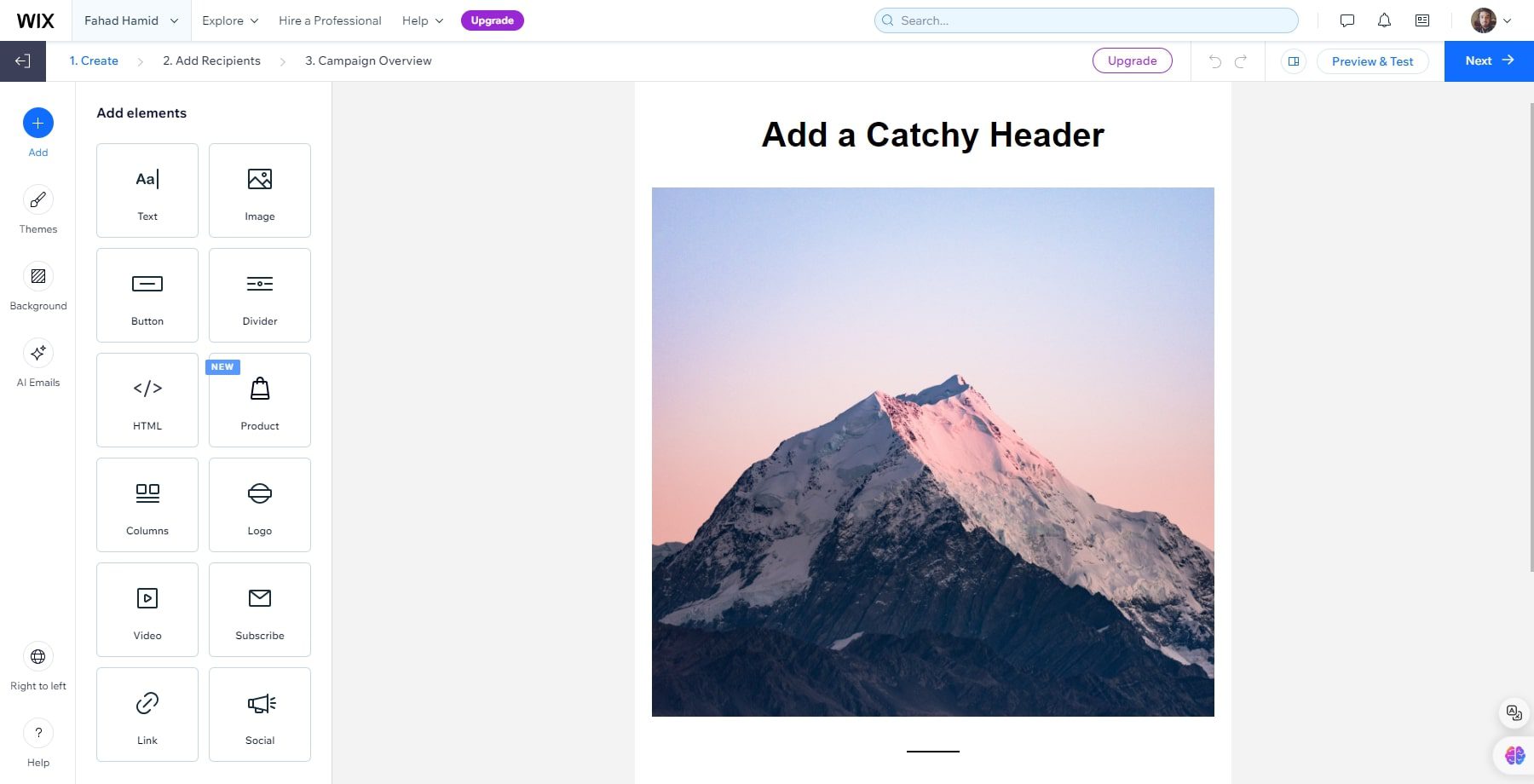
While Wix excels in many marketing aspects, it must integrate fully with all social media channels. This limitation may be a drawback for users who rely heavily on social media for their marketing efforts. However, Wix makes up for this by offering unavailable advanced SEO features on platforms like Shopify. For instance, Wix supports schema data markup and meta tags, giving users more control over how search engines crawl and handle their website pages.

Managing technical aspects such as robots.txt and customizing 404 error pages is made easy on Wix. It provides a straightforward interface for editing these elements and a selection of templates to simplify the process. Additionally, Wix allows users to control how their content appears on social media platforms through Open Graph Meta Tags, which can help improve engagement and visibility on social media channels.
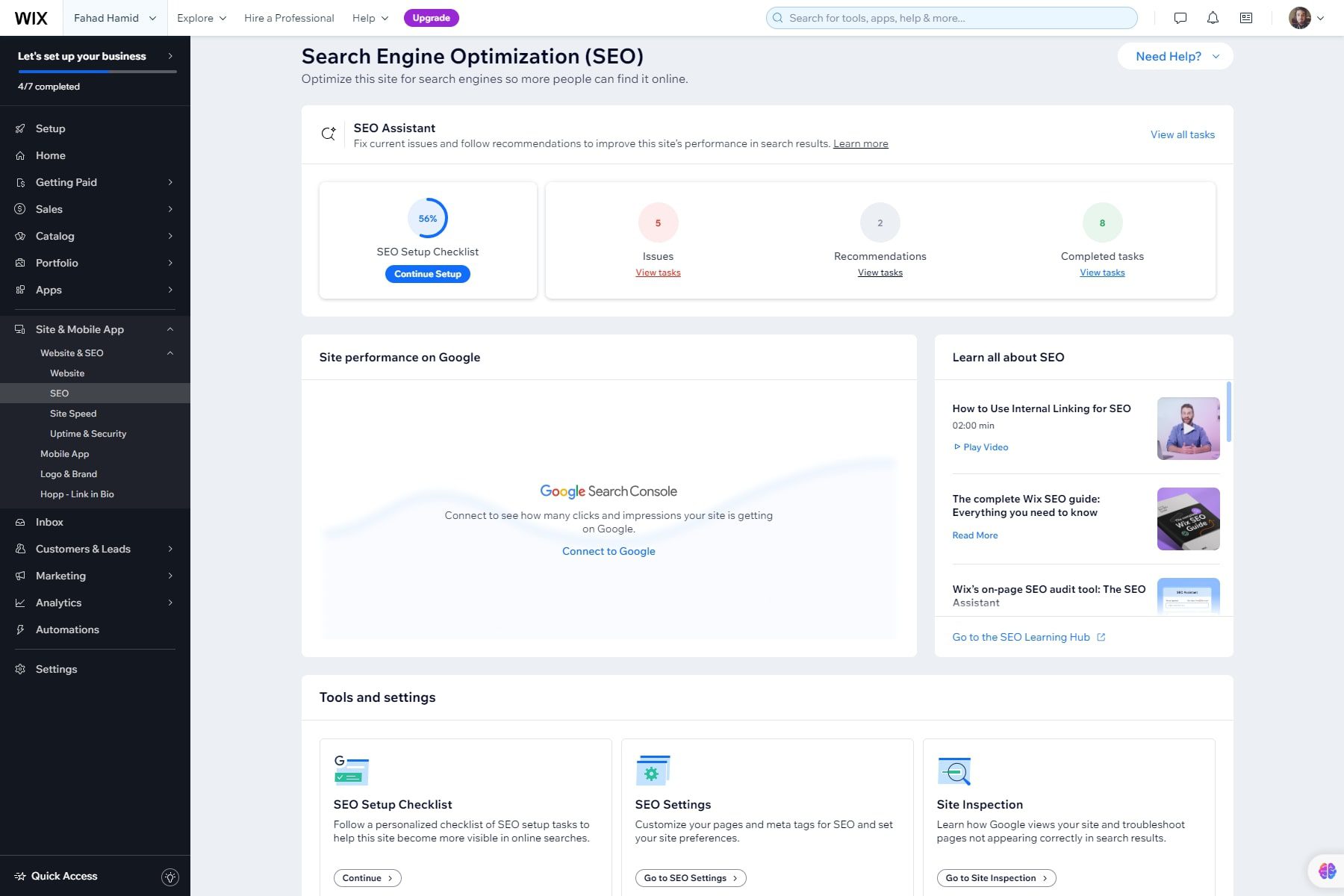
Wix further streamlines the SEO optimization process with its SEO Checklist and SEO Wiz tools. The SEO Checklist guides users through configuring important SEO aspects of their website, while the SEO Wiz tool automatically marks completed tasks for easy tracking. Moreover, users can customize SEO settings for different types of content on Wix, making it easier to optimize individual pages according to specific requirements.
Shopify’s Marketing and SEO
Shopify’s SEO and marketing capabilities have been criticized for their limitations compared to platforms like Wix. One notable drawback is the need for advanced features such as schema data markup and meta tags, which are essential for optimizing a website’s search engine visibility. While competitors like Wix offer these features by default, Shopify lacks them.
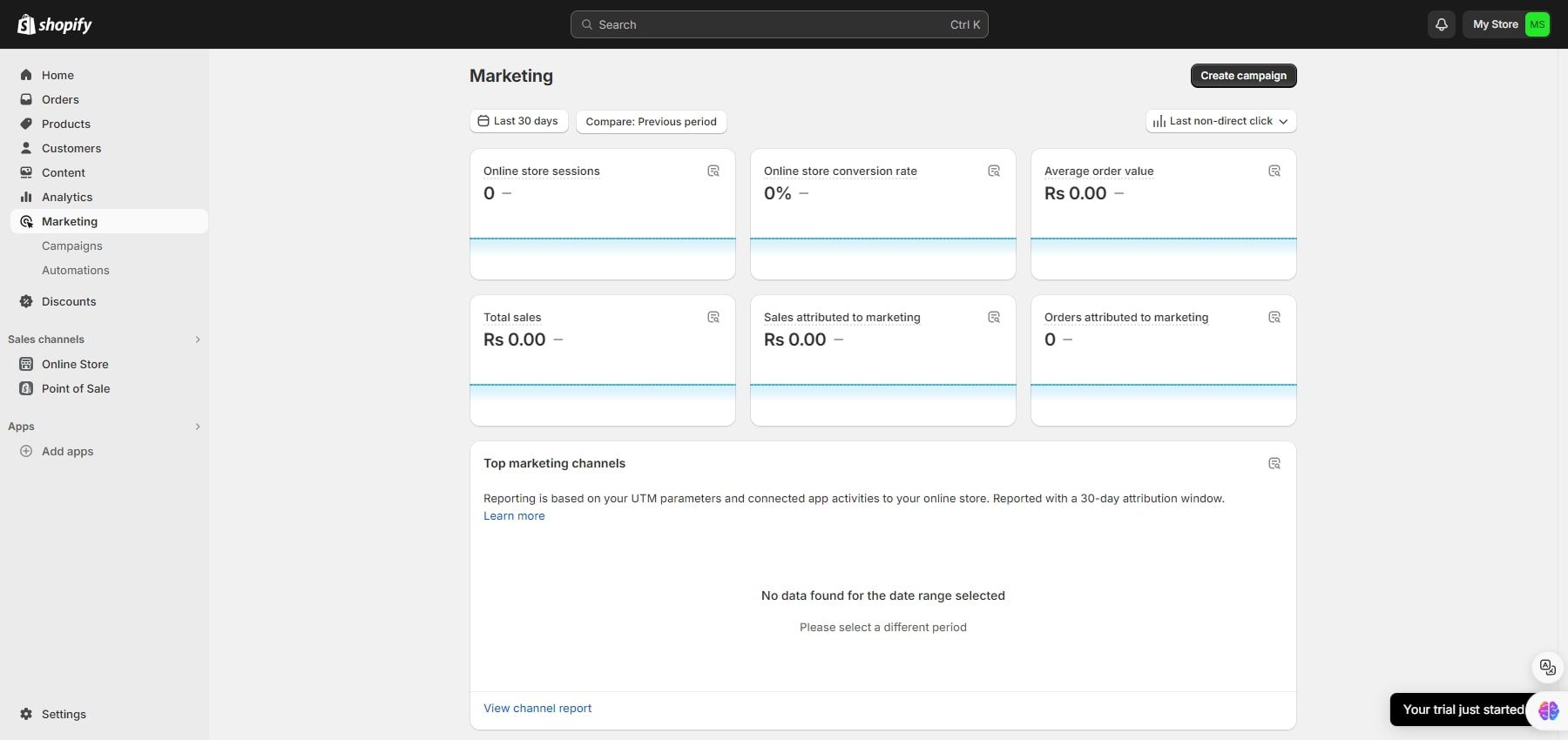
Users can integrate third-party apps like Yoast to address these limitations, which provide a fee for basic and advanced SEO functionalities. However, this solution needs to include more comprehensive capabilities offered by competitors. Moreover, customizing elements like the robots.txt file requires familiarity with Shopify’s Liquid markup language, posing a challenge for users who need more technical expertise. This limitation often necessitates hiring a Shopify Developer or Expert, incurring additional costs.
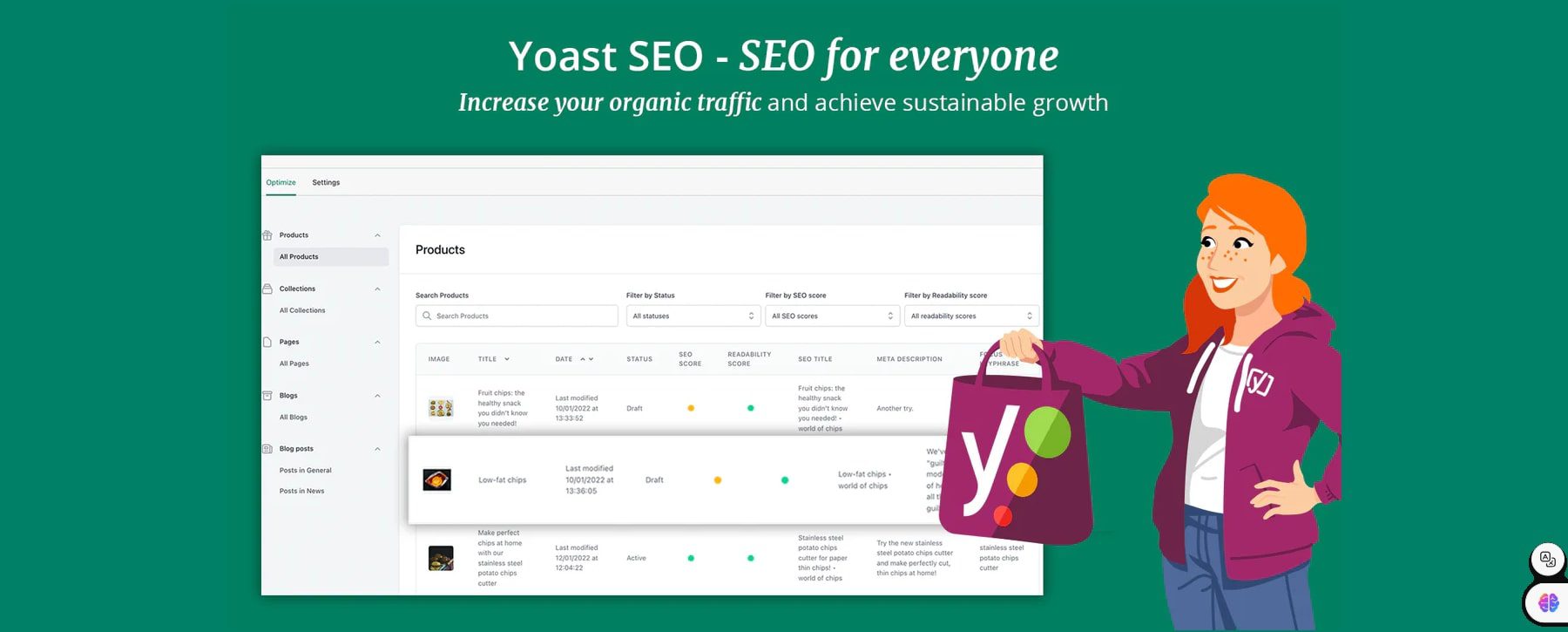
Furthermore, Shopify lacks intuitive tools for optimizing social media engagement, such as Open Graph Meta Tags, which allow users to control how their content appears on platforms like Facebook and Twitter. These features are necessary for users to have control over their social SEO strategy, impacting their ability to drive engagement and visibility on social media platforms.
Additionally, Shopify’s SEO setup needs more guidance or prompts for optimizing pages, products, or blog posts, leaving users to navigate the complexities of SEO independently. This can be daunting for users unfamiliar with SEO best practices, leading to suboptimal configuration and potential negative impacts on the site’s SEO performance.
 |  |
|
|---|---|---|
| Marketing and SEO | 🥇 Winner Wix simplifies marketing by helping you change what shows up on Google searches and allowing personalized emails through Wix Ascend. | Shopify lacks schema data markup and meta tags, often requiring third-party apps for basic and advanced SEO functionalities. |
| Choose Wix | Choose Shopify |
Winner: Wix
Opting for Wix presents a more favorable choice when deciding between Wix and Shopify for SEO optimization. With it, achieving higher rankings on Google requires less effort and resources.
Wix vs. Shopify: Which One Is Better?
 |  |
|
|---|---|---|
| Pricing | 🥇 Winner Wix provides flexible pricing plans starting from $7/month for basic websites and $11/month for online stores, offering features like free domain and eCommerce tools. | Shopify's pricing tiers start at $25/month for basic features, escalating to $399/month for advanced capabilities, potentially becoming costly for businesses. |
| Ease of Use | 🥇 Winner Wix is easier to use because you can just drag and drop things where you want them on your website. | Shopify doesn't have a simple drag-and-drop feature like Wix. Instead, you're kind of stuck with the templates they offer, which can be limiting. |
| Artificial Design Intelligence | 🥇 Winner Wix emerges as the superior choice due to its comprehensive and user-centric approach. When you start making your site, Wix's AI talks to you and asks what you want. Then, it sets up your site with those things automatically, so you don't have to do as much work. | After the initial setup, Shopify's AI doesn't play a big role in making your website look better. |
| Ecommerce Features and Capabilities | Wix has relatively limited payment options and basic inventory management features. | 🥇 Winner Shopify has extensive payment options, seamless checkout experience, and integration with third-party processors like Stripe and Authorize.net. Additionally, it offers advanced payment methods such as Google Pay and cryptocurrency payments |
| Templates and Customization | 🥇 Winner Wix gives you lots of free templates to choose from. These templates look modern and have more features. | Shopify has fewer free themes to pick from, and they might not look as modern or have as many features. |
| Marketing and SEO | 🥇 Winner Wix simplifies marketing by helping you change what shows up on Google searches and allowing personalized emails through Wix Ascend. | Shopify lacks schema data markup and meta tags, often requiring third-party apps for basic and advanced SEO functionalities. |
| Choose Wix | Choose Shopify |
Overall Winner: Wix
Overall, Wix seems to tick most boxes regarding ease of use, customization, SEO, and AI features. However, if you want something eCommerce-friendly with ready-made features and fewer AI capabilities, Shopify might suit you better. Choosing between Wix and Shopify comes down to what you need and what you like. If you like many customization options and are okay with getting into the technical stuff, Wix could be your pick.
Want to learn more about how Wix compares to other website-building options? We’ve got you covered with a detailed overview of Wix’s features and benefits.
For more on Shopify, check out our detailed Shopify Review.
AI-Powered Alternatives to Wix and Shopify
If you are looking for more flexibility and customization options beyond Wix and Shopify, WordPress will give you everything you need. Sure, it will involve more work to get everything set up initially, but after that, you are basically unlimited in what you can do.
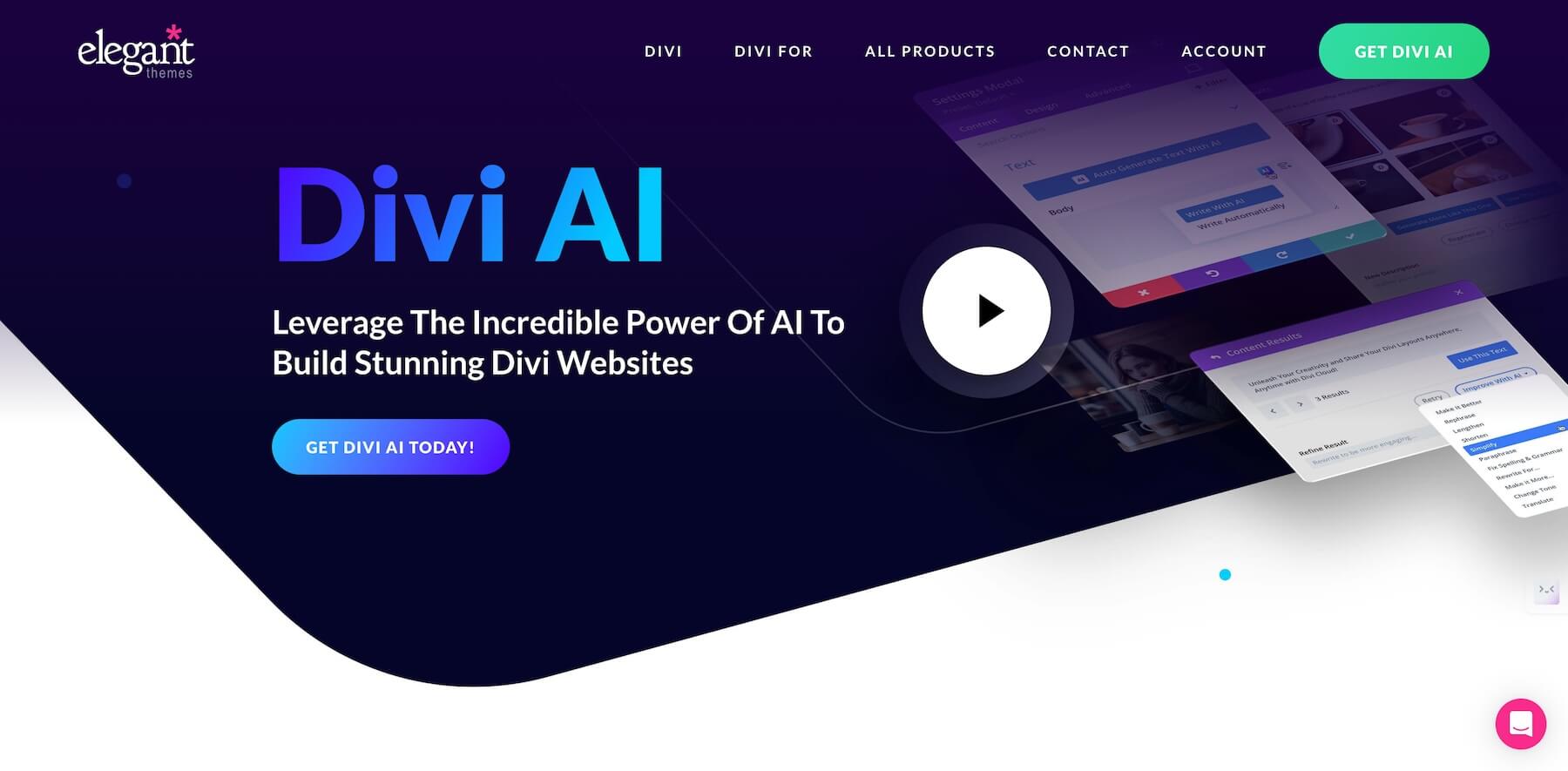
If you do decide on WordPress, we recommend using the Divi theme. It gives you full control over your website design and functionality without having to know code. The Divi page builder gives you access to Divi AI, allowing you to generate full page layouts, custom images, text, code, and more, all on the front end. And Divi integrates seamlessly with WooCommerce, one of the most popular eCommerce solutions in the world.
You can also check out our articles comparing other top website builders:
- Godaddy vs Shopify
- Best AI Website Builders
- Best Website Builders
- Best Website Builders for Small Business
Frequently Asked Questions (FAQs)
Before we conclude, let’s address some frequently asked questions about Wix and Shopify. Do you have a question we haven’t covered? Feel free to drop it below, and we’ll reply!

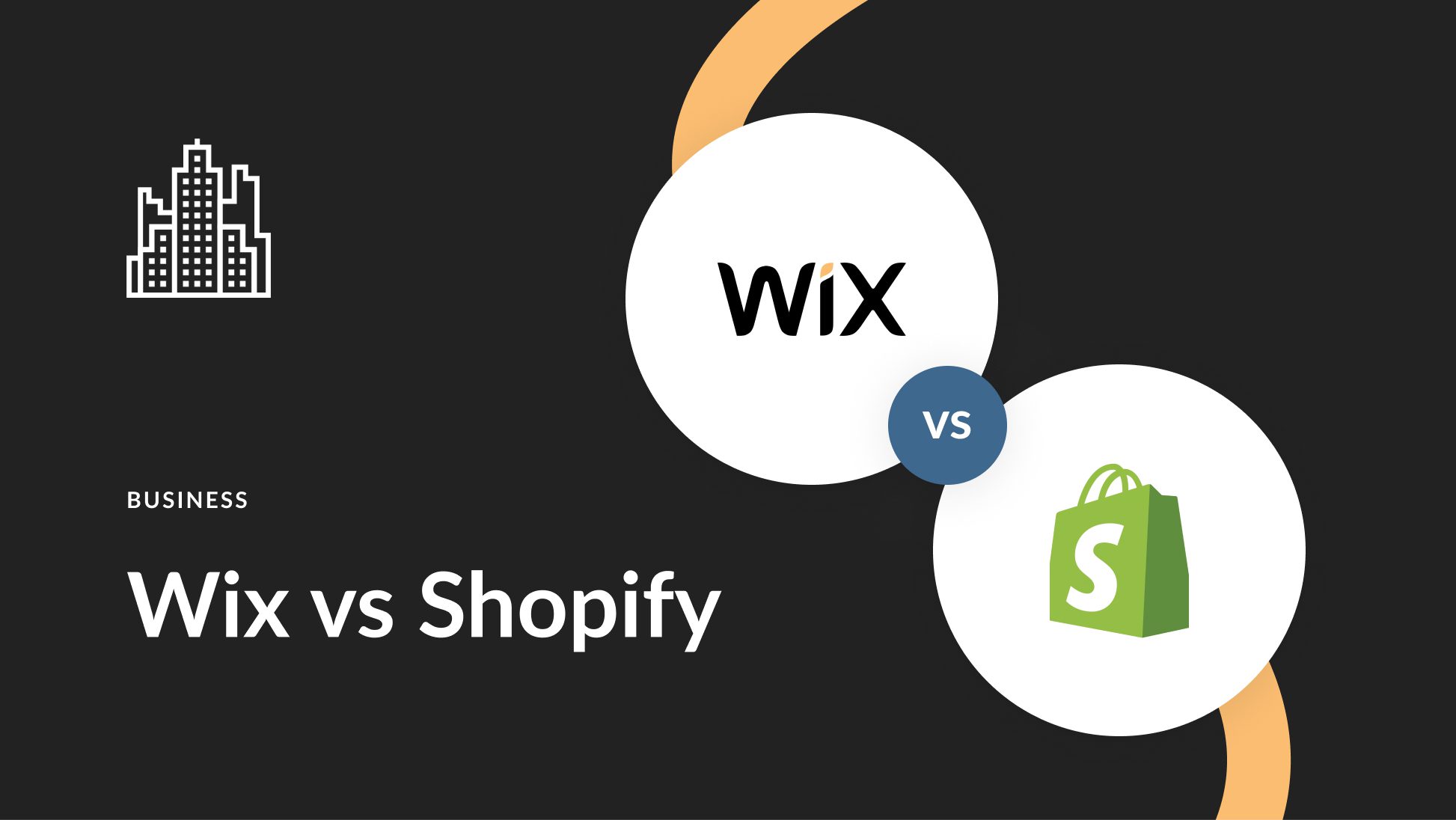



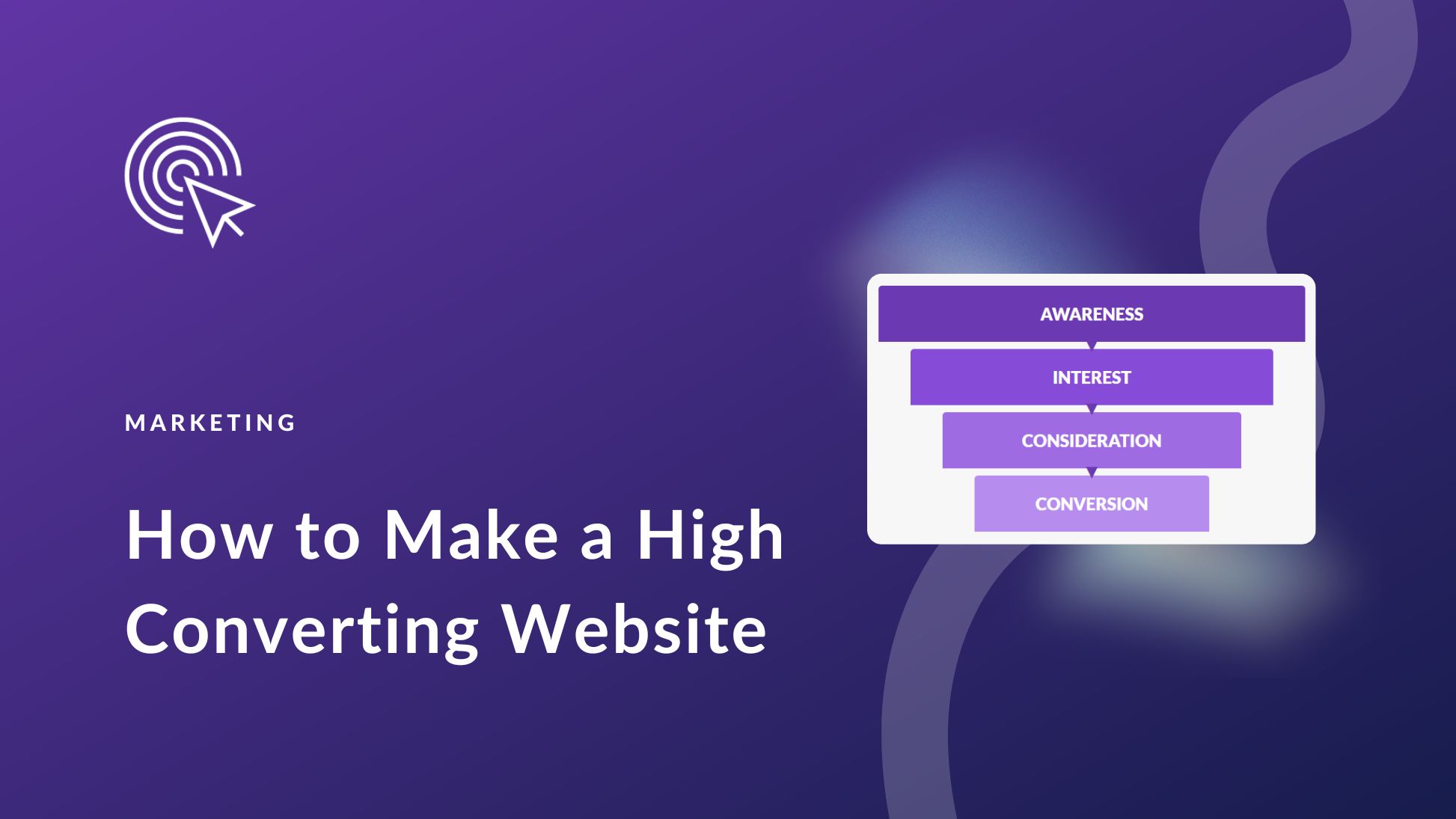
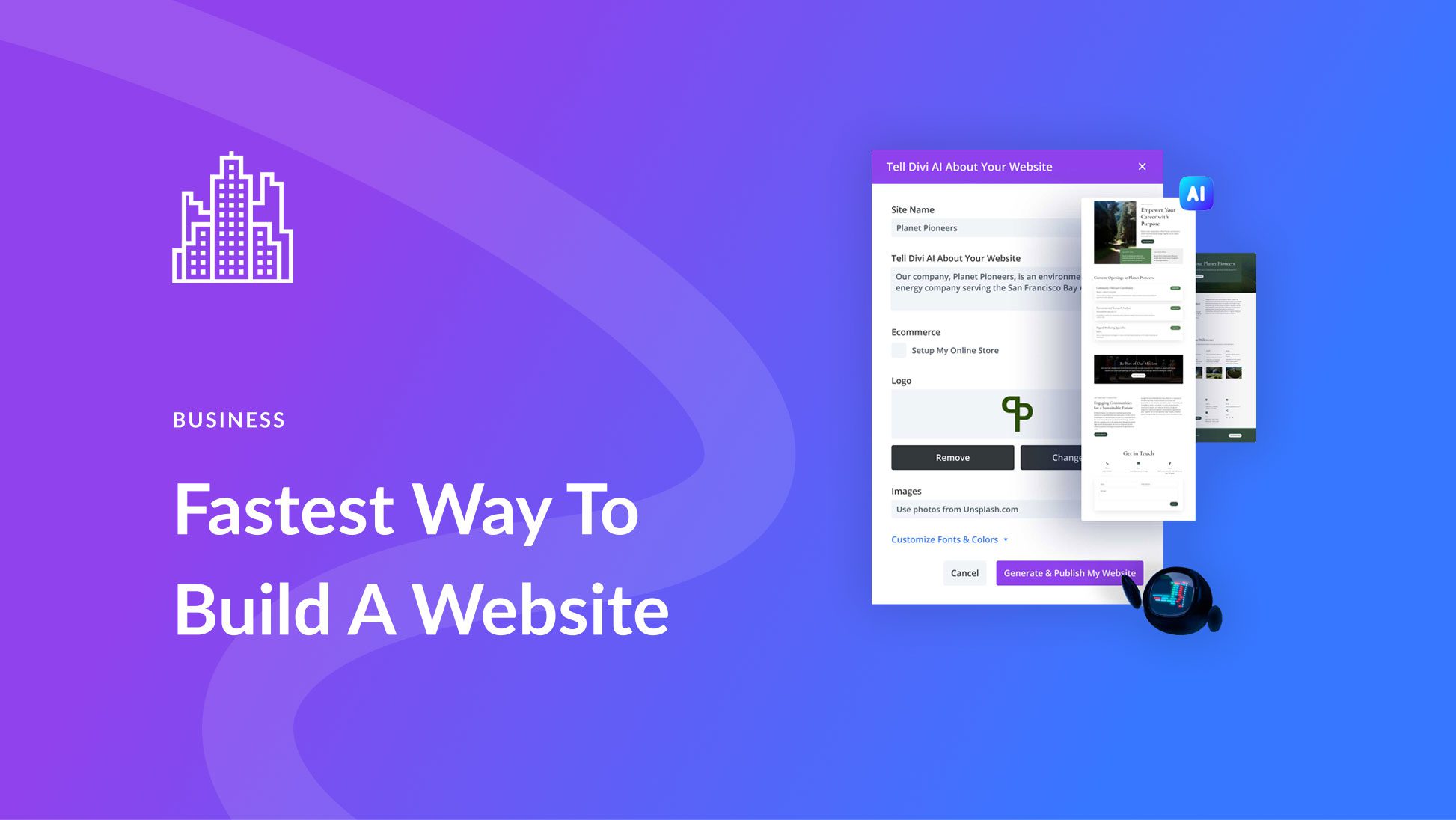
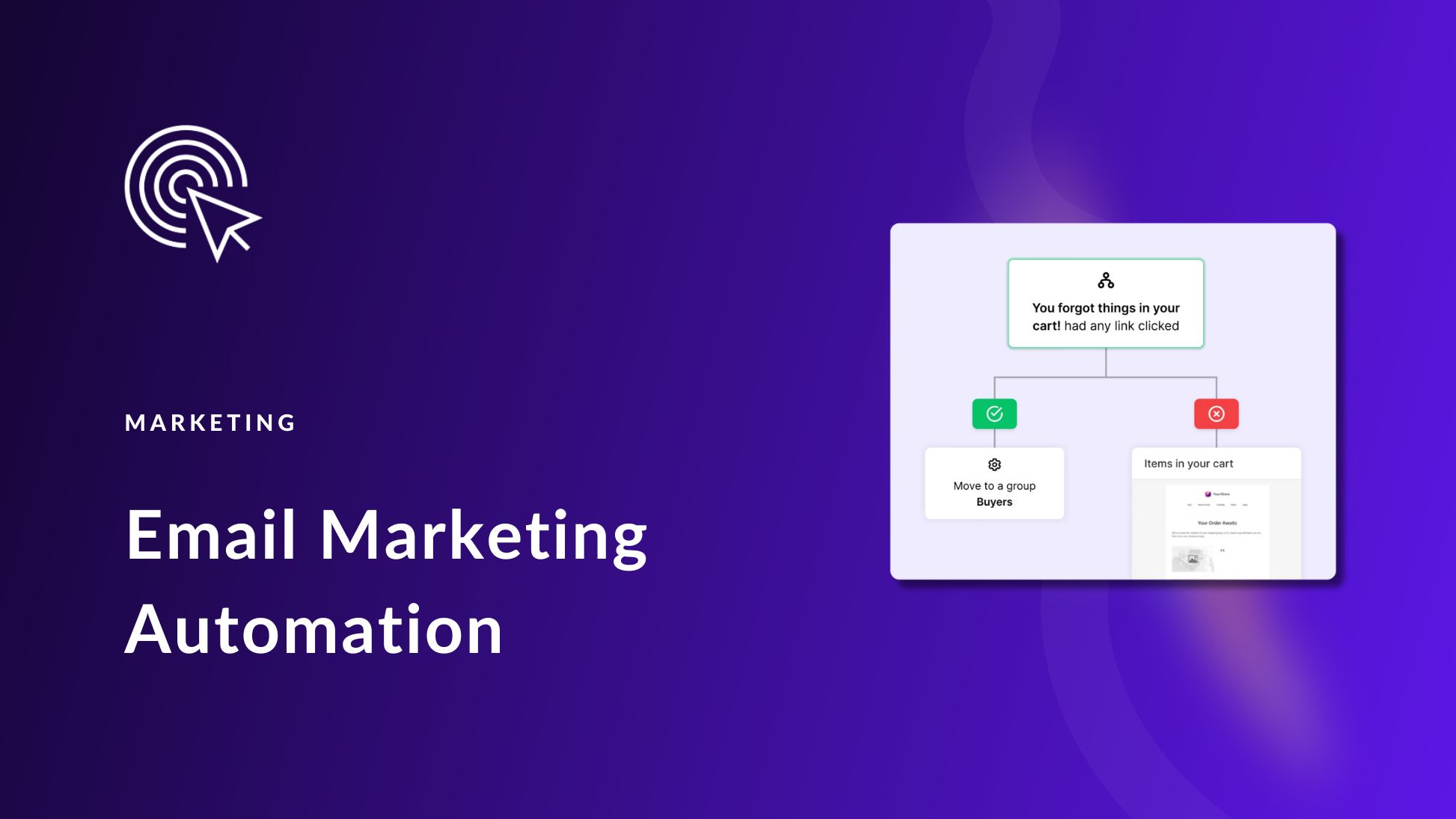
Insightful comparison! Both Wix and Shopify have their strengths, and your breakdown helps weigh the pros and cons effectively. It’s all about aligning the platform’s features with business goals. Thanks for simplifying this decision-making process!